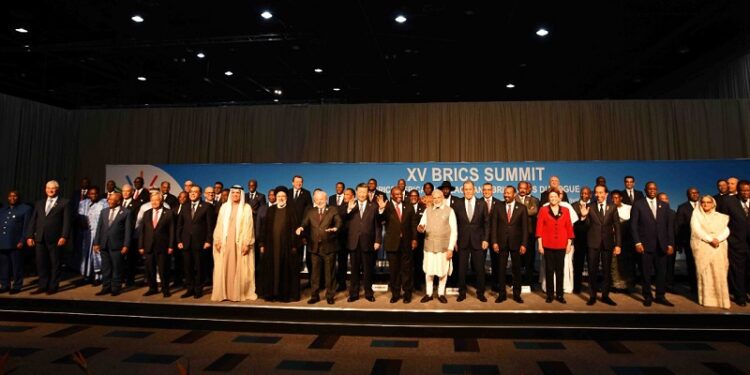The expansion of the emerging economies was announced at the 3-day BRICS summit that took place in Johannesburg earlier this week. The six additional countries that will be part of the BRICS string include Saudi Arabia, Iran, Ethiopia, the United Arab Emirates, Egypt, and Argentina. The criteria and determining factors of these nations remain unknown to the public. Speaking on VOC’s Sunday Live programme today, political analyst Theo Venter said there are other countries that would have been a more advantageous fit for the bloc.
“Pakistan is a big nation, and it is a player in several fields. Then there is Indonesia which is probably one of the largest Muslim countries in the world, and it was not considered. There is also Nigeria, in which we think is larger than Egypt. We are left with the question as to why Ethiopia was chosen and not Nigeria,” explained Venter.
According to Venter, there is no doubt that the six countries that have been requested to join the bloc will have an advantageous role to play in the already existing BRICS economies.
“BRICS is interesting in that it does not have a constitution, nor does it have a Charter to which one can subscribe to, thus making BRICS more of a lose formation of nations that proposes alternatives. The original BRIC countries without the inclusion of South Africa, were chosen by an American economist. It only become clear after South Africa had joined that the purpose of the BRICS is to bring another voice to the United Nations (UN), that is primarily being dominated by a Western voice, which is most powerful in impact of the Security Council. Venter furthermore states that an interesting paradox is that two of the members, Russia, and China, of the Security Council are also members of BRICS,” said Venter.
Venter further suggested a difference in economics related to currency.
“I think there is an economic debate happening and there is an economic issue coming. There is a political motive and there is an alternative mindset which we have seen in the past with the third world countries forming a nonaligned alliance, I think this is nonalignment with these two (Russia and China), but it is nonalignment projected differently. This form of alignment originates from the early 60s after nations got their independence from colonialism wanted to form a strong bond of those that have been suffering from colonialism,” concluded Venter.
Looking at the expansion of BRICS bloc early next year, Venter stated the name BRICS+ may be implemented.
Photo: Twitter/@GovernmentZA
VOC






 WhatsApp us
WhatsApp us 

